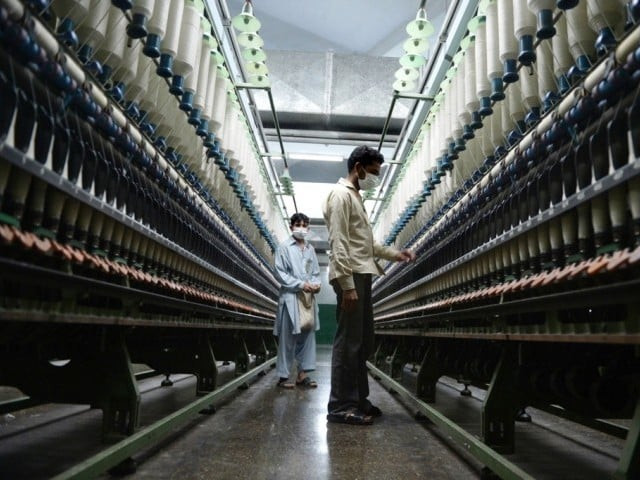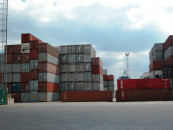Textile exports may get a boost as duty-free access approved
Industry advises preparation to make the most of trade concessions.

Pakistan will officially get duty free access after an approval by the European Parliament in January. PHOTO: FILE
Pakistan, which is in the midst of internal and external economic challenges, has received good news from Europe that it has been looking for years as the country has won majority vote in the European Union’s International Trade Committee for duty-free access to European markets.
The country has finally moved much closer to getting the Generalised Scheme of Preferences (GSP) Plus status – a package of trade concessions which is expected to boost Pakistan’s exports to Europe, especially of textiles.
“Pakistan is expected to formally get the GSP Plus status soon after approval by the European parliament. This will be a big boost to our exports, especially to textile products,” said Jawed Bilwani, Chairman of Pakistan Apparel Forum.
However, Bilwani cautioned the government and the private sector, asking them to prepare for this beforehand, otherwise the country would not be able to make the most of these trade concessions.

According to the Pakistan Readymade Garments Manufacturers and Exporters Association (PRGMEA), total textile exports to the EU can increase $580 to $700 million per year, a rise of 9.5% to 11.5% compared to fiscal year 2012-13 exports.
“This is a milestone and a major step forward in boosting textile exports of Pakistan,” All Pakistan Textile Mills Association (Aptma) Chairman for Punjab Chapter S M Tanveer commented in a press release.
He expressed the hope that the EU parliament would also give the go-ahead in the first week of December, giving Pakistan the GSP Plus status from January 2014.
“It is a great opportunity for the textile industry to manufacture and produce exportable surplus to reap maximum benefits of the scheme,” Tanveer suggested.
He also asked the government to meet energy needs of the textile industry that would provide a level playing field against competitors as the industry would be able to run without any break to the production process.
With the GSP Plus, Aptma believes Pakistan could double textile exports from the current $13 billion to $26 billion in four years.
According to a report prepared by AKD Research, the GSP Plus should have a significant positive impact on overall exports, particularly textiles. Pakistan’s exports to Europe totalled $6.1 billion in fiscal year 2012-13, accounting for 25% of the country’s total exports.
The GSP Plus would lead to an increase in textile exports, particularly of higher value added segment of the textile chain as fabrics, readymade garments and made-ups will get duty-free access to the EU market, the report added.
Under the trade preference scheme, import duties will be eliminated on more than 6,000 items that will strongly help Pakistan in one of the most competitive markets of the world.
Sub-sectors of textile like knitted and woven garments were expected to grow faster and their exports would rise $280 million annually, InvestCap Research said in a report.
The news that Pakistan would most probably get the GSP Plus status next month also excited investors at the Karachi Stock Exchange (KSE). The KSE 100-share index closed up 1.6% (374.51 points) at 23,165.21 on Wednesday.
According to Sherman Securities, foreign inflows continued to keep sentiments positive in the stock market while the news of possible inclusion of Pakistan in the GSP Plus group of countries lifted sentiments of investors, especially in leading textile companies of the country.
Published in The Express Tribune, November 7th, 2013.
Like Business on Facebook, follow @TribuneBiz on Twitter to stay informed and join in the conversation.


















COMMENTS
Comments are moderated and generally will be posted if they are on-topic and not abusive.
For more information, please see our Comments FAQ